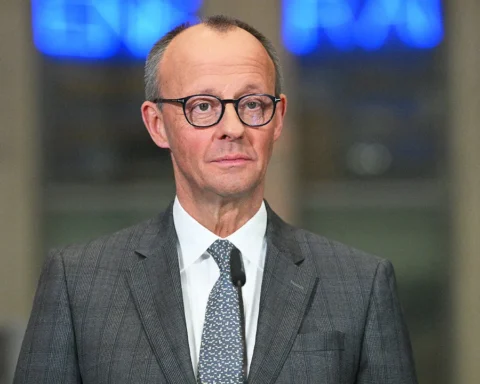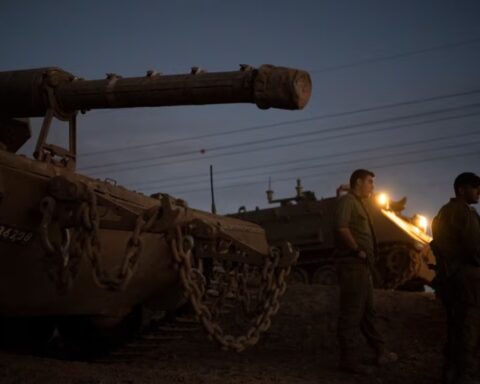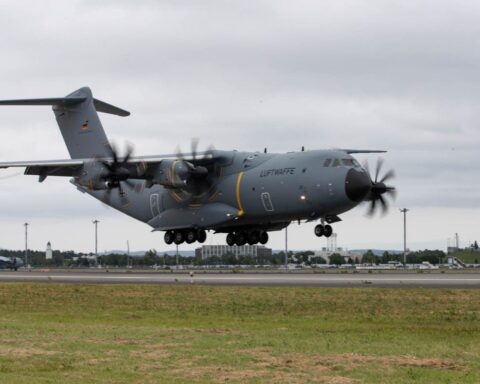Negotiations to revive the 2015 Iran nuclear deal have restarted in Vienna after a five-month hiatus during which Iran elected a new hard-line president.
“In Vienna, JCPOA Joint Commission…just started,” a spokesman for the EU delegation at the negotiations tweeted on November 29, referring to the Joint Comprehensive Plan of Action deal, which put strict limits on Iran’s nuclear program in return for sanctions relief.
The talks, which started after 3 p.m. are effectively indirect negotiations between Iran and United States, since Iran refuses to meet face to face with U.S. envoys.
Top EU negotiator Enrique Mora earlier tweeted that he will meet with the European and U.S. teams after holding talks with Iranian, Russian, and Chinese negotiators a day earlier.
The talks between Iran and the five remaining signatories began in the Austrian capital in April, with U.S. representatives participating indirectly. The talks were put on hold in June after the election of anti-Western hard-liner Ebrahim Raisi as president.
The deal reached by Iran with the United States, Britain, France, Germany, China, and Russia limited Tehran’s nuclear activities in return for the lifting of sanctions, while opening it to greater scrutiny from the International Atomic Energy Agency (IAEA), the UN’s nuclear watchdog.
But Iran has gradually breached limits imposed by the accord since then-President Donald Trump pulled the United States out in 2018 and reinstated crippling U.S. sanctions, despite Iran’s compliance with the pact. His successor, Joe Biden, has pledged to rejoin the deal if Iran returns to full compliance, but Tehran wants Washington to make the first move.
There have been growing Western concerns over Iran’s nuclear advances in its uranium-enrichment program, which is a possible pathway to a nuclear bomb, with some questioning whether Tehran is serious about reaching an agreement.
Iranian officials have maintained the country’s nuclear program is for peaceful purposes.
After meeting with Mora and the heads of the Chinese and Russian delegations, Iran’s chief negotiator said the talks in Vienna likely will set “the framework and time period” for the negotiations.
“The timing of this round of talks cannot be predicted,” Deputy Foreign Minister Ali Bagheri told Iranian media.
Iranian Foreign Ministry spokesman Said Khatibzadeh claimed on November 29 that Tehran is “firmly determined” to reach an agreement with world powers, two days after Mikhail Ulyanov, Russia’s ambassador to the UN in Vienna, said that “the talks can’t last forever.”
However, a quick breakthrough was not expected, with U.S. negotiator Robert Malley saying in an interview last week that signs from Iran were “not particularly encouraging.”
Israel, which has vocally opposed the Iran nuclear agreement, on November 29 called on world powers not to “give in to Iran’s nuclear blackmail.”
“Today, Iran will be arriving at negotiations in Vienna with a clear goal: to end sanctions in exchange for almost nothing,” Prime Minister Naftali Bennett said in a statement.
The main sticking points center around Tehran’s demand for a broad lifting of U.S. sanctions and technical nuclear details about how Tehran will return to compliance.
The EU has said that participants in the talks “will continue the discussions on the prospect of a possible return of the United States” to the agreement and “how to ensure the full and effective implementation of the agreement by all sides.”
The U.S. State Department said on November 3 that Washington hopes Tehran returns to the talks ready to negotiate and in good faith. Washington still believes it is possible to quickly reach and implement an understanding on a mutual return to compliance with the pact, State Department spokesman Ned Price said then.
The head of Iran’s Supreme National Security Council has said the United States must offer guarantees that it will not again abandon the nuclear accord in order to ensure the success of the talks to revive it.






